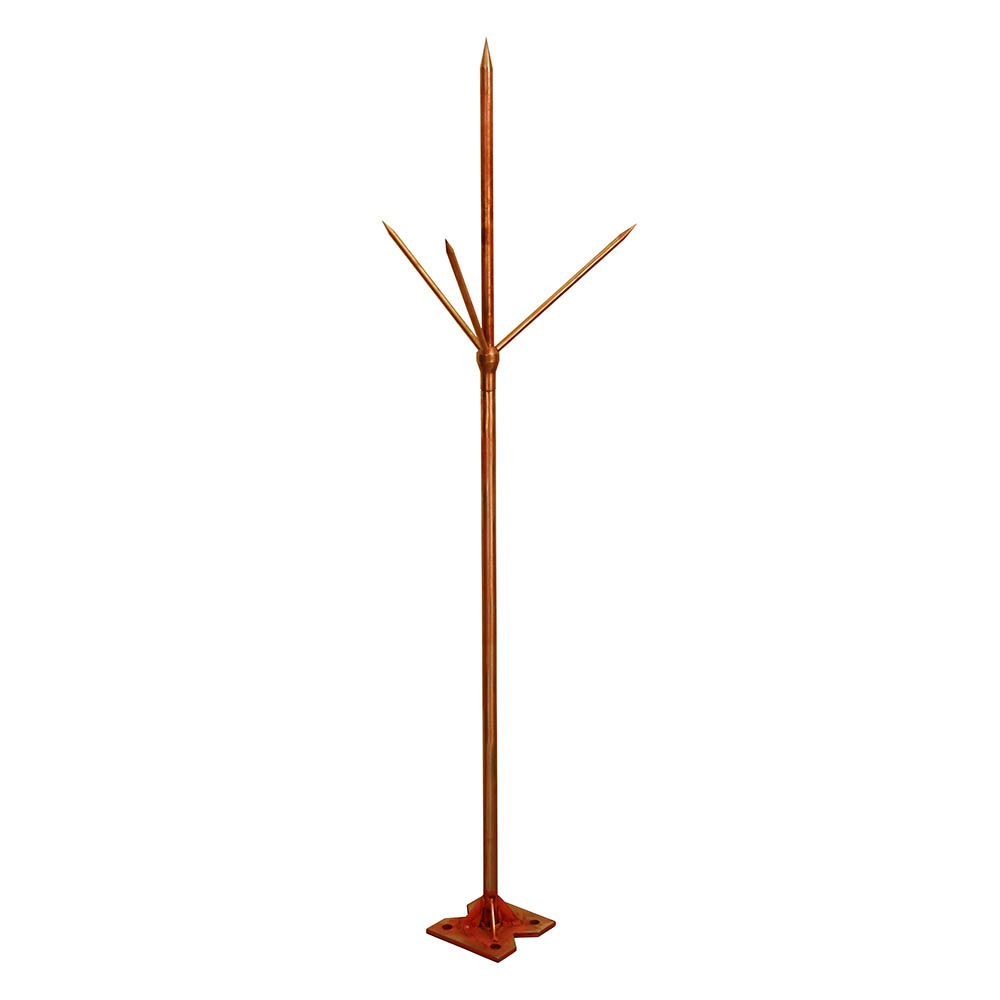
Enter your location for pricing and availability, click for more info. Copper-bonde galvanized , and stainless steel ground rods are available in many different sizes. We will not focus on stainless steel rods as their high cost prohibits widespread use.
More commonly used are copper-bonded and galvanized steel ground rods. UL-Listed hot dip galvanized ground rods and UL-Listed copper clad ground rods. Beware of copper grounding rods when combined with underground steel, even if the steel is galvanized.
ASteel Round Bar is a hot rolle mild steel solid steel bar that is ideal for all general fabrication, manufacturing and repairs. Grounding Products Ground Rods Ground. Steel Rounds are widely used in industrial maintenance, agricultural implements, transportation equipment, ornamental iron work, fencing, artwork, etc. A wide variety of galvanized ground rods options are available to you, such as drawn wire, pole anchor, and concrete anchor. You can also choose from astm, aisi.
As well as from free samples, paid samples. There are 8galvanized ground rods suppliers, mainly located in Asia. A zinc-coated ( galvanized ) rod Photo 2. A copper-coated rod , showing various sections of the same rod.
On the other han engineers are now looking at buried steel poles as a means of grounding versus a driven ground rod electrode adjacent to the pole. Keep in mind the ENTIRE surface of the ground rod is the contact area, which is a big patch for contact, which further reduces the difference between copper and galvanized. There IS a real and serious problem with corrosion between a copper and galvanizing (which is Zinc, essentially). Find ground rods for nearly every application, along with all the ground rod accessories you need. If you are looking for a particular ground clamp, the right conduit bushing or just need a few more electrical conduit fittings, Grainger also has those bases covered.
High-strength corrosion-resistant copper alloy. UL listed for copper-coate galvanized and stainless steel ground rods. For use with ground rods for proper electric fence grounding. Save BIG on our selection of ground rods , ground bars and ground lugs from Menards! The ground rod will insure that your mast is grounded better than if it were not there so may help your antenna.
The stainless steel clamps and fasteners will help to prevent galvanic and electrolytic actions between the copper and galvanized steel metals. A typical galvanized ground rod has a coating thickness of 3–mil, so it can be concluded that the service life of a galvanized rod is 10–years. In another past study, the Naval Civil Engineering Laboratory (NCEL) conducted a 7–year program of testing metal rods for electrical grounding6.
It should be noted that galvanized driven rods have been developed to address the corrosion concerns that copper presents, and in many cases are a better choice for prolonging the life of the grounding rod and grounding systems. Generally speaking, galvanized rods are a better choice in all but high salt environments. High carbon steel with a hot-dipped galvanized zinc coating.
Application Driven into the ground in the construction process for tower, substation, pole, and necessary grounding of all major projects. The listed galvanized ground rod , Prior sai meets the strictest interpretation of the NEC. All rod -type grounding electrodes or “ ground rods ” are manufactured from a steel core with a nonferrous coating to guard the steel. The clamp assembly consists of a stainless steel hex-head bolt and a hot dip galvanized clamp body. Make sure the correct type of rod is used for the grounding , for example pipe or rebar.
It needs to be galvanized steel at least ft. Do not use copper ground rods as these will lower the effectiveness of the connection. Excavated ground busses show corrosion of the coating from tinned copper busses and zinc from galvanized rods. Behavior of feuerverzinkter reinforcing steels in alkaline concrete in consideration of the Alkali‐ and of chromate content of used cements.
Need to register for an account? Manufactured from zinc - coated high strength steel. Preferred electrode when primary concern is cathodic protection to structure.
Meets requirements of NEMA GR-1. Drive remaining rod above grade, down after connection if needed by hand using a sledgehammer, retighten connection. But remember, if you decide to go with copper, be consistent throughout! Heavy duty galvanized ground rod clamp.
Minimize Corrosion of Electrodes. I believe, for RF purposes, copper or copper clad is the better conductor to ground with. Drive a ground rod into the ground at each end of the trench and one in the middle. With the brass acorn ground clamps, attach the galvanized wire to the rods laying it in the bottom of the trench.
Attach the end of the wire to the negative or ground post of the fence charger. It is recommended that you install one more ground rod for your lightning protection than you have for your energizer, then you should put in four at your lightning ground field. We also recommend that you install a surge protector on the power side of the energizer. Bad for conductivity overall. So much for the installation metho but what about the effectiveness of copper pipe vs.
Copper pipe will probably bend and fold going into clay past 3-ft deep. In a given substation ground grid design using copper cable, if you substitute different cable materials such as copper clad steel cable and the grid resistance increases, can you just change the number of cables and increase the ground rod numbers or depth to achieve the same resistance of the copper constructed ground grid? Tin-plated version available of galvanized ground rods. How do you know when you need a second ground rod and where do you place it?
This video is unavailable.
No comments:
Post a Comment
Note: Only a member of this blog may post a comment.